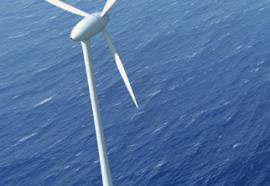PPL
The 40 Best Energy Companies
(September 2011) Our annual ranking tracks the publicly traded electric and gas companies that produce the greatest value for shareholders. Despite the year’s topsy-turvy financial markets, perennial performers like DPL, PPL and Exelon return to the top of the list. Others face looming cap-ex burdens as regulators impose new mandates and requirements. Leading companies are positioning for growth, despite a challenging landscape.
Bonneville's Balancing Act
In the Pacific Northwest, you either spill water or spill wind.
The wind power industry has been up in arms ever since the Bonneville Power Administration earlier this year announced its Interim Environmental Redispatch and Negative Pricing Policy. That policy, applicable during periods of high spring runoff and heavy water flow volumes on the Federal Columbia River Power System, calls for BPA to redispatch and curtail access to transmission for wind power generating turbines, and to replace that resource with hydroelectric power generated via BOA hydroelectric dams, in order to avoid having to divert water through dam spillways, which could threaten fish and wildlife by creating excess levels of Total Dissolved Gas (TDG), which can cause Gas Bubble Trauma. Yet the legal issue remains unclear: Does this practice imply discrimination in the provision of transmission service, or is it simply a matter of system balancing and generation dispatch? In fact, the FERC may lack jurisdiction over the dispute, as it pertains to the fulfillment of BPA’s statutory mandates.
People (July 2011)
Vendor Neutral
(June 2011) Duke and ATC team up to build transmission lines; AEP installs bioreactor to control selenium emissions; NextEra buys 100 MW of wind from Google; Ocean Power Technologies awards contracts for wave power array; Kansas City picks Elster; BC Hydro picks Itron; plus contracts and developments involving Tres Amigas, Ioxus, Opower and others.
Treading Water
With no guidance yet from FERC, Atlantic Wind is forced to wait.
Touted as the nation’s first-ever “offshore transmission highway,” the proposed Atlantic Wind Connection (AWC) high-voltage power line in theory could foster dozens of wind farms in shallow offshore costal waters up and down the mid-Atlantic seaboard — but only if federal regulators can get buy-in for new transmission planning rules that give precedence to large, macro projects aimed at boosting renewable energy. Otherwise, the grid project might never pass muster with the engineers charged with OK’ing new power lines, since the AWC is probably not needed to maintain reliability, and likely would not make electricity rates any cheaper for East Coast ratepayers. Should wind energy developers start with massive grid projects to attract clusters of wind turbines, or should the wind farms come first?
Call Center Quality Assurance
Submitted by meacott on Tue, 2011-04-26 18:03Like many other industries in which employee performance is crucial to the customer experience, the utility industry provides an essential commodity to the public. As they are often under intense scrutiny, utility companies must also take steps to minimize their exposure to liability issues.
Vendor Neutral
(March 2011) TVA and EPRI demonstrate solar-assisted EV charging station; Ford unveils the all-electric Focus; Central Maine Power awards substation contracts; ERCOT deploys ABB software in nodal market; FirstSolar starts up PV plant for Southern Company and Ted Turner; plus contracts and announcements involving Open Systems International, Verizon, Suntech Power, Alcatel-Lucent, Siemens, Cisco, Elster, Sensus, Silver Spring Networks and others.






